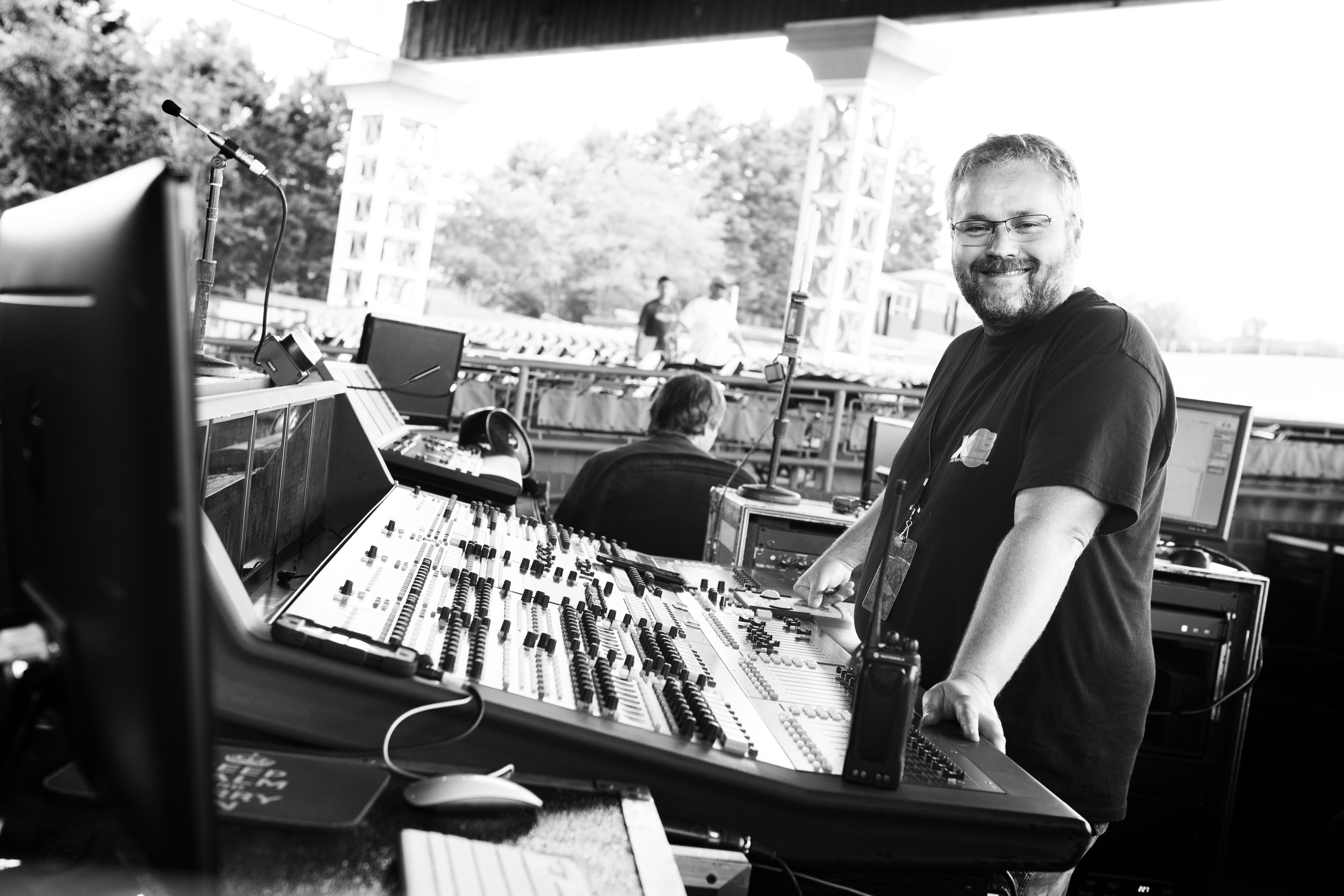From ‘The Ball Street Journal’: Behind the Scenes with Garry Brown

Due to injury, Garry Brown was forced to leave the Royal Navy in the late 1980s. He started picking up sound-engineering positions for bar bands and was working for a PA company when The Rolling Stones hired them to go on tour. It just so happened that Trey Anastasio opened two of those shows in 2005, and Brown served as the guitarist’s front-of-house engineer and stagehand for rehearsals. They clicked and Brown has overseen Phish’s FOH since they regrouped in 2009.
What was the live music scene like where you grew up?
To be honest with you, I actually never went to a gig until I was seventeen. So my first concert would have been Bananarama. My musical life was definitely something that happened a little bit late. I’m Northern Irish by birth, but we moved out of Northern Ireland, to England, with all the trouble that was going on there at the time.
How did you get into audio engineering and sound, and what was your first gig?
I basically started down the path of a military career, and then, while serving in the navy, I damaged my knee. When I came out [of the service], I went to a show in Birmingham, England, and just asked for a job at the end of the gig. That was in 1990. It was a small pub band, and they had just gotten rid of somebody, so I started with them the next day. At that time, I was just helping out. I didn’t even know that an audio engineering job existed until then.
Talk about your introduction to Trey.
I was introduced to Trey in 2005. I had been using a PA company for bands I had worked for, and they were servicing Trey. They were his PA provider, and I went out with [longtime Phish monitor mixer Mark “Bruno” Bradley’s] tech to cover The Rolling Stones shows that Trey did. I was basically just in the right place at the right time. That was the first time his team saw me, and they saw what I was doing well. Then, they asked me to stay on for that States tour that happened right after those shows.
After that tour, they asked me to come back and mix for them so, basically, my first show mixing Trey was at Madison Square Garden in 2005 when he opened for The Black Crowes on New Year’s Eve. I’ve been going on the road and mixing Trey since then. Obviously, when Phish came back together in 2009, it was a transition from mixing just Trey on to Phish.
What was an early lesson that you learned in your career?
To me, you’re constantly learning. The live band, in some ways, is about compromise, so you have to adapt to every situation and just do it because that moment is never coming back.
How is mixing a festival like Magnaball different than mixing a more traditional show?
In some respects, it’s the same as a shed. But not having a roof [on the venue] means that there is no room ambience to work with, so you’re going to have to rely a bit more on effects—more reverb—just to sweeten the sound. For instance, at The Mann Center [8/11-12/15 in Philadelphia], I had all of my reverb off because the room was giving me so much. There’s no use for me putting more reverb in the room when there’s already a bunch of reverb there. But I’m looking forward to being out there and doing Watkins Glen and doing all the sound with a complete PA, so everything comes together for those shows. They’re actually easier—and different.
Are there certain rooms that you particularly enjoy when working with Phish?
I loved the old [Madison Square Garden]. When they upgraded MSG, the sound of the room changed, but I used to look forward to going to MSG because it was just such a good sounding room. The band has always enjoyed playing there because of the audience divider. It’s changed now, but I’m sure I’ll come to love it again.
I like doing arenas with Phish, and I think a relatively ambient environment speaks to the band more. The noise of the audience is a bit more prominent. I think the show works more when the sound of the room is working, though sometimes you get to a place where there is too much ambiance and that can be a problem—a place like Blossom Music Center in Ohio was designed for an orchestral show, as opposed to a rock show.
Do you have a memorable story or experience from being on the road with these guys in the past couple of year?
My first year mixing Phish—being the new guy and being a foreigner—I got away with things a little more than I do now. I remember it was a good jam session at sound check one night at MSG, and the band was being themselves, going off and jamming. I decided to call them out and egg them on: “I thought you were going to rock out.” And then the next thing the four did for me [was] play some hard-rock song. And it’s just like, how do those guys do it? It’s just amazing.



















